Hanoi : Dengue fever increases rapidly, more outbreaks appear
Last week, Hanoi had 73 more cases of dengue fever (an increase of 35 cases compared to the previous week) and 2 outbreaks.
According to the Hanoi Department of Health , last week (from the 14th to now), there were 73 more cases of dengue fever in Hanoi (an increase of 35 cases compared to the previous week). Patients were distributed in 19 districts, mainly recorded in Dan Phuong district with 41 cases.
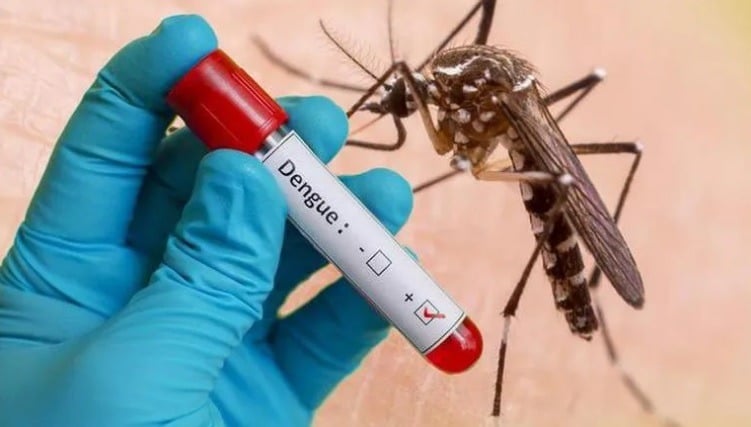 |
| Last week, Hanoi had 73 more cases of dengue fever (an increase of 35 cases compared to the previous week) and 2 outbreaks. |
Thus, from the beginning of 2024 to now, the whole city has had 856 cases of dengue fever (an increase of more than 1.7 times compared to the same period in 2023).
In addition, last week, two more dengue fever outbreaks were recorded in Trung Liet ward (Dong Da district) and Phuong Dinh commune (Dan Phuong district).
Up to now, the city has had 14 dengue fever outbreaks. There are currently 4 active outbreaks in Bai Thap and Dong Van villages ( Dong Thap commune, Dan Phuong district); cluster 10 of Tan Hoi commune (Dan Phuong district); E4 Thai Thinh collective housing area, Trung Liet ward (Dong Da district) and Phuong Mac village, Phuong Dinh commune (Dan Phuong district). The outbreak in Dong Thap commune, Dan Phuong district has recorded 89 patients so far.
Health experts say dengue fever no longer develops in cycles but changes with climate and environmental changes. It is predicted that erratic weather will increase the risk of outbreaks from July to November.
In particular, subjects such as the elderly, people with underlying diseases and children need more attention because the risk of the disease easily becoming severe.
Emphasizing the dangers of dengue fever, according to the World Health Organization (WHO), 3.9 billion people in 129 countries are at risk of dengue infection, accounting for more than half of the world's population. It is estimated that 390 million cases of dengue fever occur worldwide each year, 96 million of which are clinically symptomatic.
Severe cases occur in about 500,000 people each year, with a mortality rate of 10% among hospitalized patients. However, this mortality rate can be reduced to less than 1% if early diagnosis and treatment based on warning signs are detected.
In Vietnam, according to statistics from the Ministry of Health, in 2023, the country recorded more than 172,000 cases of dengue fever, 43 of whom died. Compared to 2022, the number of cases decreased by about 54%, the number of deaths decreased by 72% (108 cases less).
Bacterial coinfection is a relatively rare but serious complication of dengue hemorrhagic fever. Up to 44% of dengue-related deaths have bacterial coinfection.
According to Mr. Khong Minh Tuan, Deputy Director of the Hanoi Center for Disease Control (CDC), dengue fever is no longer a cyclical disease but has a high number of cases every year due to climate change, environment and population characteristics. Therefore, this is the disease that must be focused on prevention and control number one.
Faced with the unpredictable developments of diseases in general and dengue fever in particular due to the impact of weather and environment, Hanoi CDC recommends that people should not be subjective.
To prevent the disease, the effective preventive measure is still to actively clean the environment, completely remove water containers, a favorable environment for mosquitoes to lay eggs.
If a patient with dengue fever has warning signs such as: High fever, abdominal pain in the liver area, vomiting or bleeding gums, irregular menstruation or cold hands and feet, low blood pressure... they need to go to a medical facility immediately for examination and timely treatment. Absolutely do not self-treat at home, subjectivity leads to the risk of serious illness and death.
Regarding dengue fever, doctors warn of some mistakes that make dengue fever worse, such as not going to the doctor, using antibiotics on one's own, and thinking that once the fever is gone, the disease is cured.
There is currently no specific treatment for dengue fever, mainly treating symptoms and monitoring warning signs. Patients need to be hospitalized when they have one of the following signs: mucosal bleeding, bleeding from the teeth, nose, or digestive tract; abdominal pain in the liver area; severe vomiting; rapid decrease in platelet count and concentrated blood; and little urine.
With dengue fever, there are mistakes in treatment that make the disease worse that people need to avoid at all costs. Accordingly, the symptoms of dengue fever are easily confused with common viral fever, making patients subjective and the disease easily becomes worse, causing many complications, even endangering life.
Dengue fever is divided into 3 levels: Mild, with warning signs and severe. Patients often subjectively do not go to the doctor but self-treat.
In mild cases, patients may be advised to monitor at home but still need to go to the doctor for diagnosis, treatment and close monitoring.
In severe cases, the patient may experience dangerous complications such as internal bleeding, brain damage, liver and kidney damage, and even death if not detected promptly.
Most patients mistakenly believe that once the fever is gone, they are cured because the fever goes down and the body feels more comfortable. However, in reality, the most dangerous stage is after the high fever stage.
At this time, the patient needs to be closely monitored by the doctor and have absolute rest, limit heavy exercise and travel a lot because after 2-7 days, platelets can decrease severely and plasma can escape, the patient may experience symptoms of subcutaneous bleeding, nosebleeds, etc.
Depending on the severity and complications of the disease, it can lead to internal bleeding, pleural effusion, gastrointestinal bleeding, dengue shock, and even death.
Dengue fever patients often have a high fever continuously, so to reduce the fever quickly, they take fever-reducing medicine without following the correct dosage instructions.
There are even many cases of using the wrong antipyretic drugs such as using aspirin and ibuprofen instead of paracetamol, leading to more serious bleeding in the patient, possibly severe gastric bleeding, which is life-threatening.
Many people think that mosquitoes that transmit dengue fever only live in stagnant public water, sewers, etc.
However, Aedes mosquitoes live in places where water has been left for a long time, such as aquariums, flower vases, rockery, rainwater stagnant in broken bowls in home gardens, alleys, terraces, construction sites, etc. Therefore, it is necessary to remove stagnant water containers that are places for Aedes mosquitoes to breed and develop.
To avoid dengue fever transmission by mosquitoes, many people think that it is okay to spray insecticide at any time. However, the first step to kill mosquitoes is to clean the house, turn over all mosquito hiding places to kill larvae, then spray insecticide to kill adult mosquitoes.
To effectively kill this mosquito, spray in the morning. Because dengue mosquitoes are active during the day, they are strongest in the early morning and before sunset. It should be noted that insecticide sprays are effective for 6 months from the time of spraying.
Many people believe that once they have had dengue fever, they will not get the disease again. This is not necessarily true. Because dengue fever is caused by the Dengue virus, which has 4 strains: DEN-1, DEN-2, DEN-3 and DEN-4. All 4 strains of this virus are capable of causing the disease.
Therefore, if a person has had dengue fever, during the illness the body can produce antibodies.
However, the immunity that is created is only specific to each individual strain. The patient may not be reinfected with the old virus strain but can still be infected with the new strain and can get dengue fever again.
Many people think that when having dengue fever, you should only drink electrolyte replacement drinks and not drink coconut water because it does not have the effect of rehydration and it is difficult to detect complications.
This is completely wrong, in dengue fever, high fever for several consecutive days will cause the patient to lose water and fluid. The simplest way to compensate for fluid loss is to give the patient Oresol.
However, many patients have difficulty drinking Oresol. This can be replaced by drinking coconut water, orange juice, grapefruit juice, lemon juice to compensate for the lost fluid. Moreover, the above fruits contain many minerals and vitamin C, which help strengthen the immune system and increase the strength of blood vessels.
Many parents have the wrong treatment when their children have dengue fever. When they see bruises on their children, they think that they have to cut the wound to remove some of the toxic blood so that they will recover quickly.
This can lead to uncontrollable bleeding. This is an entry point for bacteria, which can cause life-threatening blood clotting disorders in children.
Source: https://baodautu.vn/ha-noi-sot-xuat-huet-tang-nhanh-xuat-hien-them-nhieu-o-dich-d218450.html




![[Photo] Hanoi morning of October 1: Prolonged flooding, people wade to work](https://vphoto.vietnam.vn/thumb/1200x675/vietnam/resource/IMAGE/2025/10/1/189be28938e3493fa26b2938efa2059e)

![[Photo] Keep your warehouse safe in all situations](https://vphoto.vietnam.vn/thumb/1200x675/vietnam/resource/IMAGE/2025/10/1/3eb4eceafe68497989865e7faa4e4d0e)
![[Photo] President of the Cuban National Assembly visits President Ho Chi Minh's Mausoleum](https://vphoto.vietnam.vn/thumb/1200x675/vietnam/resource/IMAGE/2025/10/1/39f1142310fc4dae9e3de4fcc9ac2ed0)


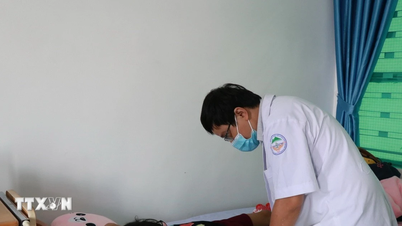







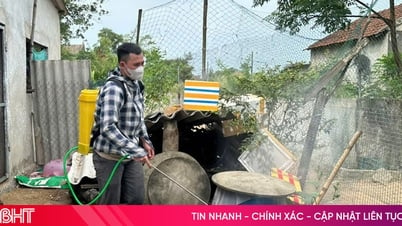






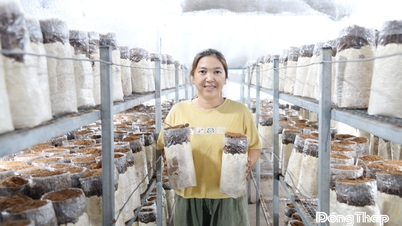



















































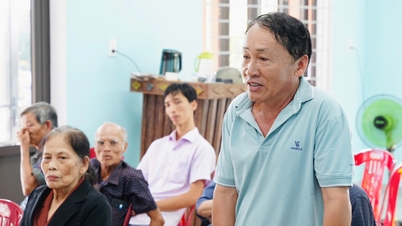





















Comment (0)